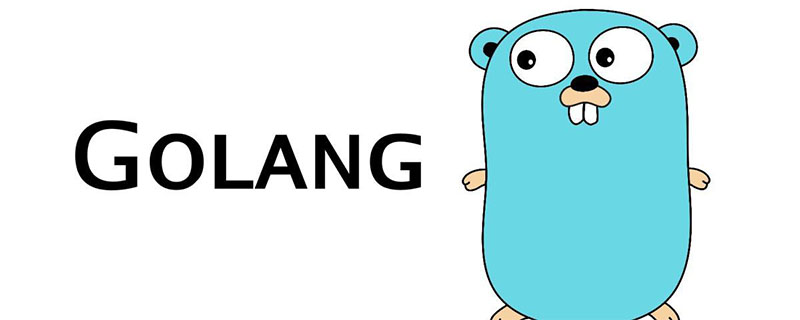golang如何設定時間
- 尚原創
- 2019-12-27 09:18:128899瀏覽

在我們程式設計過程中,常常會用到與時間相關的各種務需求,以下來介紹 golang 中有關時間的一些基本用法。
golang可以使用日期時間包time設定時間,golang的日期時間包time的使用方式:
1、time package 包含了time.Time 時間物件及建構此時間物件的某些方法(time.Unix(), time.Parse())
2、golang 可精確到nanosecond,故對應的函數回傳值或參數都已奈秒為單位,我們可以藉助time.ParseDuration( durationString string)友善的產生奈秒度量的時間跨度值
#3、golang 的時間格式字串Layout固定為2006-01-02 15:04:05
4、golang 預設使用Local 即本地時區,可透過time.LoadLocation(zoneName string) (*Location, error)來設定時區
時區建構/格式化模式字串
#time .LoadLocation 可以載入並回傳一個時區變數
golang 使用2006-01-02 15:04:05做格式串,有人說是golang誕生時間,也有的說按月/日/時/分/秒/年的話是01/02/03(15-12)/04/05/06(2006),大家自行理解吧
// 构建时区
var timeLocation *time.Location
timeLocation, _ = time.LoadLocation("") //UTC
timeLocation, _ = time.LoadLocation("UTC") //UTC
timeLocation, _ = time.LoadLocation("Local") //Local
timeLocation, _ = time.LoadLocation("Asia/Shanghai") //使用时区码
//golang的时间格式化pattern
var timeLayout = "2006-01-02 15:04:05"當前時間物件
使用 time.Now() 方法可以取得目前時間對象,時間對象透過 time.Now().In()方法設定時區,也可透過timer.Local()/timer.UTC()產生一個對應時區的新的時間對象。
// 获取当前时间对象 var timer time.Time timer = time.Now() // 为时间设定时区 可以通过 timer.Local()/timer.UTC() 快速设定时区 timer.In(timeLocation)
取得秒級時間戳記/奈秒時間戳記
// 获取当前秒级时间戳
var curTimestamp int64
curTimestamp = timer.Unix()
println("current timestamp:" + strconv.FormatInt(curTimestamp, 10))
// 获取当前纳秒及时间戳 1秒=1000毫秒=1000,000微妙=1000,000,000纳秒
var curNanoTimestamp int64
curNanoTimestamp = timer.UnixNano()
println("current nano timestamp:" + strconv.FormatInt(curNanoTimestamp, 10))取得本機時間的時區/CST標準時間/自訂格式
// 获取本地时间的时区/快速获取时区时间/自定义格式
timeZone, _ := timer.Zone()
fmt.Printf("time zone: %s\n", timeZone)
fmt.Printf("time location: %s\n", timer.Location())
fmt.Printf("time in local zone: %s\n", timer.Local().String())
fmt.Printf("time in utc zone: %s\n", timer.UTC().String())
fmt.Printf("time: %s\n", timer.String())
fmt.Printf("time formatted: %s\n", timer.Format("2006-01-02 15:04:05")取得目前的年/月/日時:分:秒奈秒
// 获取当前的年/月/日 时:分:秒 纳秒
fmt.Printf("current year: %d\n", timer.Year())
fmt.Printf("current month: %d %s\n", timer.Month(), timer.Month()) //返回的Month对象
fmt.Printf("current day: %d\n", timer.Day())
fmt.Printf("current hour: %d\n", timer.Hour())
fmt.Printf("current minute: %d\n", timer.Minute())
fmt.Printf("current second: %d\n", timer.Second())
fmt.Printf("current nanosecond: %d\n", timer.Nanosecond())取得目前時間/日期##
// 获取当前时间/日期
curHour, curMinute, curSecond := timer.Clock()
fmt.Printf("current clock: %d:%02d:%02d\n", curHour, curMinute, curSecond)
curYear, curMonth, curDay := timer.Date()
fmt.Printf("current date: %d-%02d-%02d\n", curYear, curMonth, curDay)
編輯時間/求兩個日期的時間差
time.ParseDuration(durationString string)可以方便我們使用語意建構時間跨度值,數值單位為奈秒,例如:timeDuration, _ := time.ParseDuration("24h")timeDuration, _ := time.ParseDuration("12m")timeDuration, _ := time. ParseDuration("6s")timeDuration, _ := time.ParseDuration("1ms")timeDuration, _ := time.ParseDuration("1us") timeDuration, _ := time.ParseDuration("1ns")// 已当前时间为基增长年/月/日后的时间对象
timerAdded := timer.AddDate(1, 2, 3)
curYear, curMonth, curDay = timerAdded.Date()
fmt.Printf("current date: %d-%02d-%02d\n", curYear, curMonth, curDay)
// 以当前时间为基增长N纳秒后的时间对象 比如增长了一天
timeDuration, _ := time.ParseDuration("24h")
timerAdded = timer.Add(timeDuration)
// 计算两个时间的差值 返回的是纳秒 按需求自行计算其他单位
// Duration is type of int64 and nanoseconds
timeDuration = timerAdded.Sub(timer)
fmt.Printf("days duration between %s~%s: %d\n",
timerAdded.Format(timeLayout),
timer.Format(timeLayout),
timeDuration/1000/1000/1000/24/60/60)
使用時間字串/ Unix Timestamp 建構時間物件
// 使用时间串获取时间对象 timer, _ = time.Parse(timeLayout, "2018-08-08 08:08:08") // 使用时间串获取时间对象 并设定时区 timer, _ = time.ParseInLocation(timeLayout, "2018-08-08 08:08:08", timeLocation) // 使用Unix时间戳构建时间对象 timer = time.Unix(1552368806, 0) //2019-03-12 13:33:26的Unix时间戳 fmt.Println(timer.Format(timeLayout))
取得目前時間是本年第幾天本週第幾天
注意週日 的 Weekday編號為 0// 获取当前时间是本年第几天 本周第几天
fmt.Printf("year day: %d, week day: %d\n", timer.YearDay(), timer.Weekday())
使用表徵字串轉換時間跨度
// 使用表征字符串转换时间跨度
timeDuration, _ = time.ParseDuration("300s")
fmt.Printf("nanosecond: %d\n", timeDuration)
timeDuration, _ = time.ParseDuration("300us")
fmt.Printf("nanosecond: %d\n", timeDuration)更多golang知識請關注golang教程欄位。
以上是golang如何設定時間的詳細內容。更多資訊請關注PHP中文網其他相關文章!

